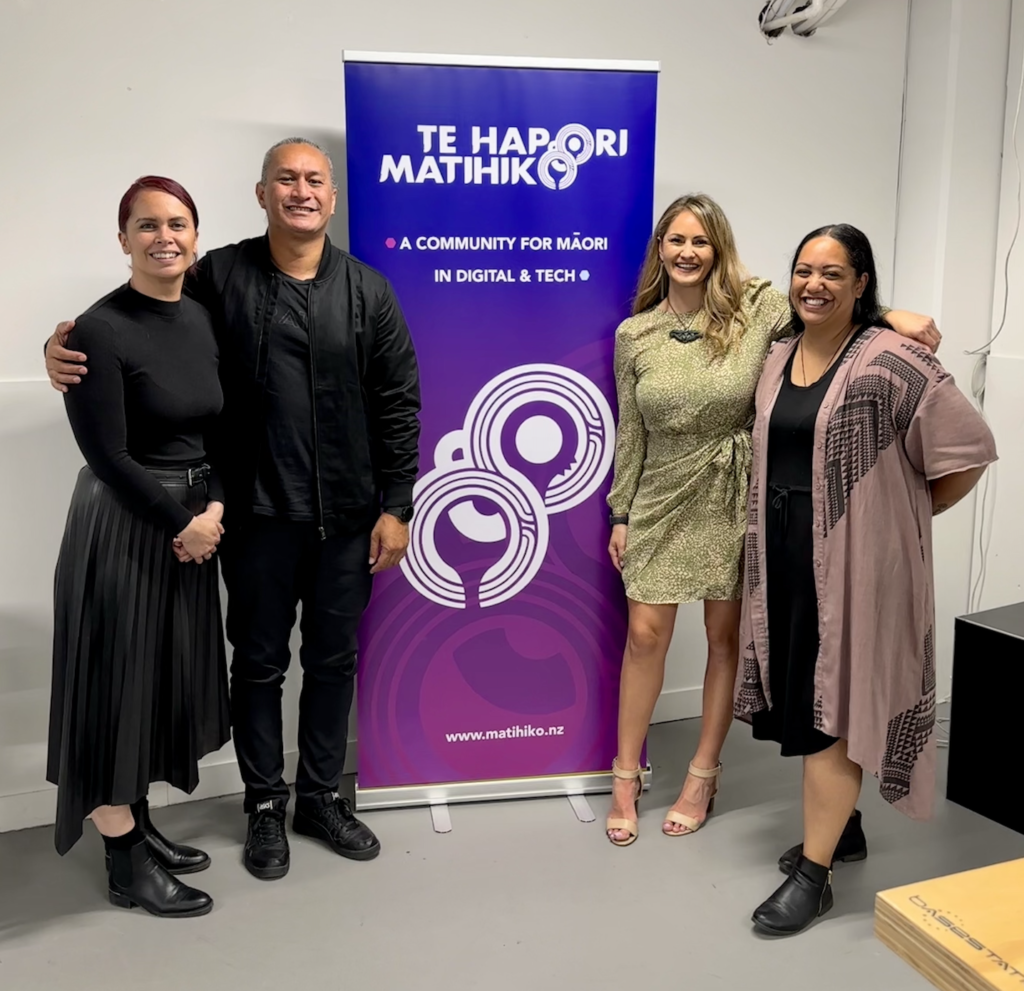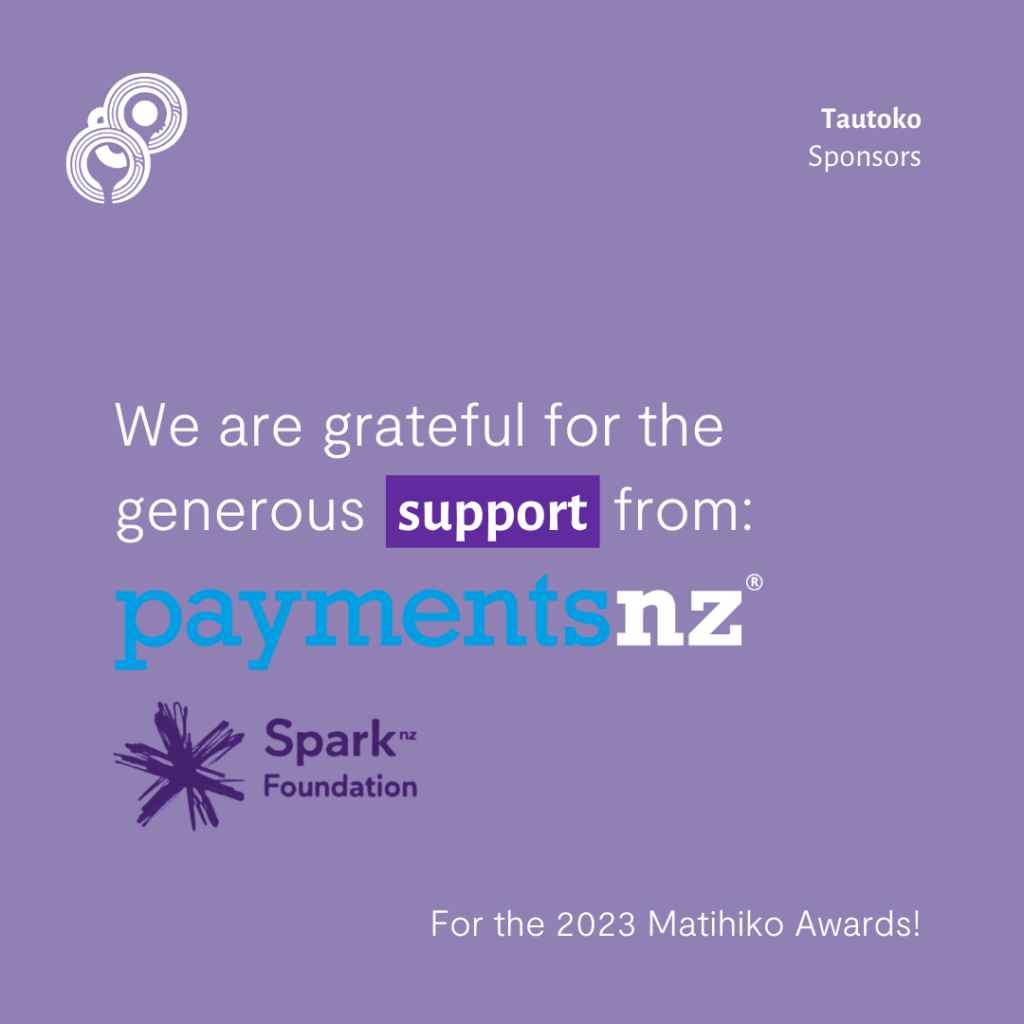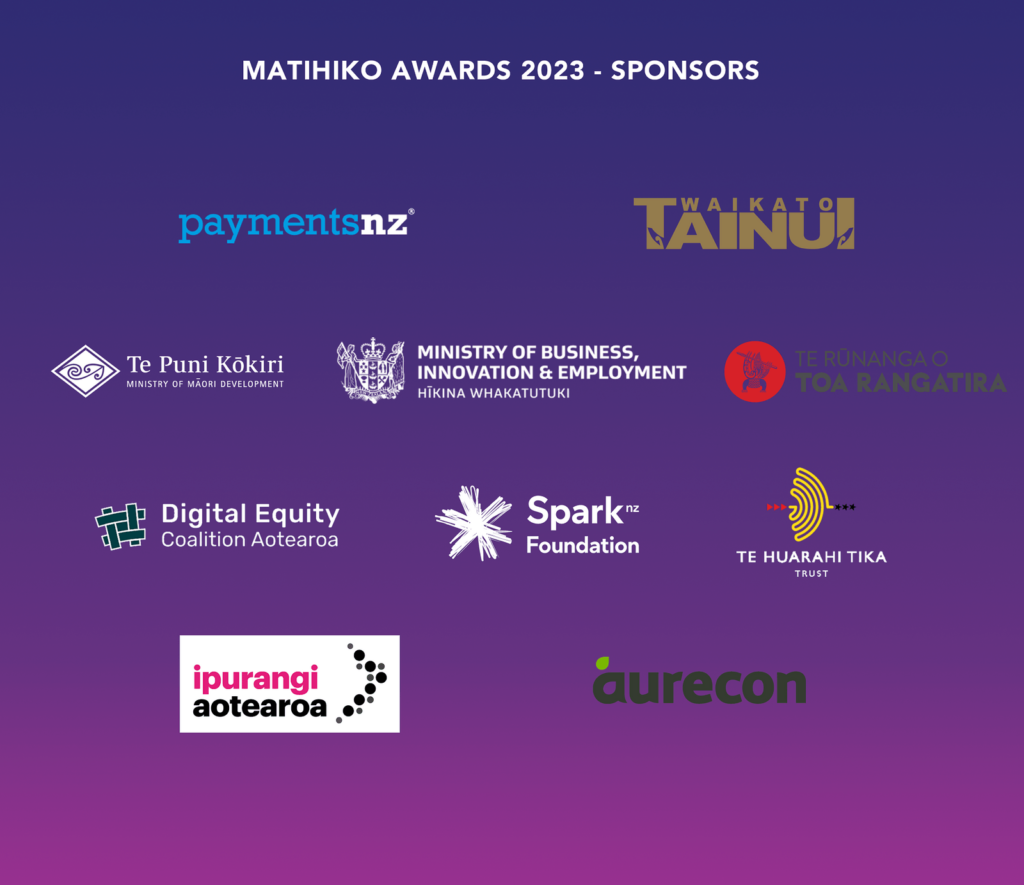A huge mihi to our featured member – Aleisha Amohia for sharing her journey in Te Ao Matihiko. Scroll down below whanau to read more about her journey!
Patai 1 – Where are you from & what do you do?
Kia ora! I whakapapa to Te Āti Haunui-a-Papārangi and India on my Dad’s side, and Cambodia on my Mum’s side. I was born in Te Whanganui-a-Tara Wellington, where I still live and work.
I do a bunch of things, but in my day job I am the Koha Technical Lead and software developer at Catalyst IT. Catalyst IT is a tech company that specialises in open source software, and I work specifically in the Koha library software team. For me, this looks like writing code for the Koha project, leading a team with three other developers, presenting at events, conferences and trainings, and more. I love that everyday is different, I am constantly building and learning, and I get to work with awesome people.
Outside of my paid mahi I also volunteer a lot in the gender equity space. I am the President of the Wellington Branch of Te Kaunihera Wāhine o Aotearoa or the National Council of Women New Zealand. I look after a branch of around 50 local women and we get together every month to organise events, engage with local and central government, discuss issues relating to gender, collaborate with and fundraise for other community groups, and foster social connections.
Patai 2 – How did you get into your mahi?
Catalyst hosts an annual open source academy for high school students, which I attended as a 15 year old back in early 2014. The two-week academy gives young people a chance to learn about open source processes and tools, then some time is spent making contributions to a real-life open source project. Throughout the academy there are industry leaders giving presentations, providing guidance, and mentoring the students. I enjoyed the whole experience so much that I asked how I could keep contributing, and by the end of 2014 Catalyst had offered me a summer internship which turned into a permanent position with the Koha team. I worked part-time while I studied but was able to easily transition into full-time when I graduated, and was promoted to Technical Lead in 2022.
I undertook a Bachelor of Science (Computer Science & Artificial Intelligence) and a Bachelor of Commerce (Management & Information Systems) while studying at Victoria University of Wellington. This was my first experience of the inequities that exist in the tech sector; it was the first time I’d really seen the industry as male-dominated, because I’d come from a single-sex high school. I realised I didn’t want other young wāhine interested in science and tech to feel how I’d felt, so I helped to establish the Victoria University of Wellington Women in Tech (VUWWIT). I was elected President for two years, and we organised all kinds of events, workshops, and activities. This was the start of my advocacy journey, as I began to explore how I could help other marginalised groups in all parts of society.
Patai 3 – What advice would you give to other Māori looking for a career in digital & tech?
My advice is to find ways to stay in touch with yourself. While I love the work I do, I can acknowledge there are parts of the tech sector that are inherently non-Māori, so I’ve found ways to engage with the tech sector that will protect my wairua and keep me grounded. One of those methods is working with open source software, as I believe open source values align really closely with te ao Māori values. Another key method is to have a community of other Māori in tech where I feel safe, where we encourage each other and awhi one another, both in work and on our personal journeys.
Patai 4 – What’s the coolest project you’ve worked on or, what piece of mahi are you most proud of?
In my advocacy mahi, one of my favourite projects with VUWWIT was our annual conference WITcon. It was a tech conference that centered young people, especially young women, and put culture and career talks in the same stream as technical talks. I believe it influenced how tech conferences could be run if they want to be inclusive.
In my paid mahi, one of the features I developed for the Koha project was a built-in CMS feature. This gave Koha libraries around the world the ability to create custom pages for their library website, in as many languages as they use, with an interface that didn’t require them to know how to write code. The freedom to create their own content and customise it for how the library and their users may interact with it is such a cool thing to have provided, and is a concept that I feel is unique to open source software. The development for this feature was co-sponsored over six years, by three libraries whose Koha are hosted by Catalyst, and is now available for all Koha libraries around the world to use.



